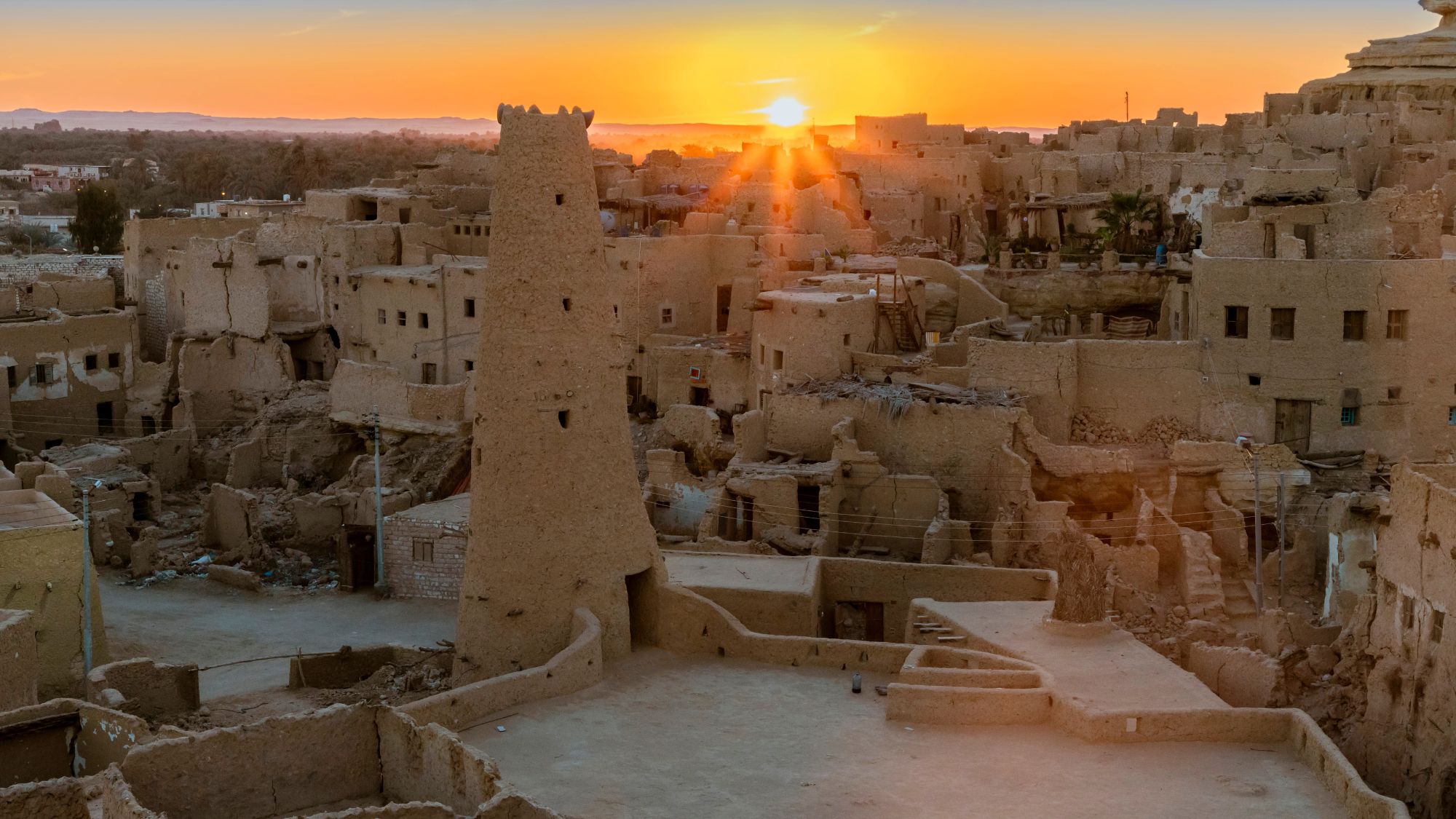A journey into Egypt's western desert
There is much more to be found in Egypt when straying from the usual tourist destinations

A free daily email with the biggest news stories of the day – and the best features from TheWeek.com
You are now subscribed
Your newsletter sign-up was successful
Most foreign visitors to Egypt stick to the Nile Valley or the Red Sea coast, but that's to miss the bulk of this huge country – the deserts that stretch westwards from the river to the Libyan border.
Amid these "unfathomable distances" lie ancient Christian monasteries, oasis temples and thrillingly "surreal" landscapes, said Stanley Stewart in the Financial Times – and most are relatively free of tourist crowds. On a private trip with Original Travel, I visited Cairo and Alexandria before heading into the desert in a 4x4 with a local guide. Our ultimate destination was Siwa, where in 331BC Alexander the Great consulted the oracle at the Temple of Amun, a striking ruin today. But there were many other "wonders" to see on the way.
Christian monasticism began in the Egyptian desert: in the 4th century, St Anthony – later known as the "father of all monks" – went there to live in an empty tomb, and was tempted by the devil. In Wadi El Natrun, we visited the monastery of Deir al-Suryani, founded two centuries later, and gazed into the "startled" faces of the holy men depicted in "exquisite" murals in its 10th-century church. From there, we drove to Qasr el Sagha, a Pharaonic temple perched on a lonely ridge. Its caretaker served us tea and told of the desert djinns he heard "howling to one another" at night. Then came Wadi al-Hitan, where the fossilised skeletons of ancient whales (creatures whose limbs were still more leg-like than fin-like) lie half-covered in the sand – a sight as "astonishing" as any in Egypt. We drove over dunes, and passed through the Black Desert (where the hills are "charred" with basalt) and the White Desert, with its "bizarre" pinnacles of limestone and chalk.
The Week
Escape your echo chamber. Get the facts behind the news, plus analysis from multiple perspectives.

Sign up for The Week's Free Newsletters
From our morning news briefing to a weekly Good News Newsletter, get the best of The Week delivered directly to your inbox.
From our morning news briefing to a weekly Good News Newsletter, get the best of The Week delivered directly to your inbox.
And we stayed in some beautiful hotels – two belonging to the Tzila company, and the "splendid" Adrère Amellal in Siwa, the lush oasis town where Alexander, setting out to conquer the known world, spoke with the oracle, and divulged afterwards only that "he had heard what pleased him".
A nine-night trip costs from £4,000pp, including flights (originaltravel.co.uk).
A free daily email with the biggest news stories of the day – and the best features from TheWeek.com
-
 The EU’s war on fast fashion
The EU’s war on fast fashionIn the Spotlight Bloc launches investigation into Shein over sale of weapons and ‘childlike’ sex dolls, alongside efforts to tax e-commerce giants and combat textile waste
-
 How to Get to Heaven from Belfast: a ‘highly entertaining ride’
How to Get to Heaven from Belfast: a ‘highly entertaining ride’The Week Recommends Mystery-comedy from the creator of Derry Girls should be ‘your new binge-watch’
-
 The 8 best TV shows of the 1960s
The 8 best TV shows of the 1960sThe standout shows of this decade take viewers from outer space to the Wild West
-
 6 exquisite homes with vast acreage
6 exquisite homes with vast acreageFeature Featuring an off-the-grid contemporary home in New Mexico and lakefront farmhouse in Massachusetts
-
 Film reviews: ‘Wuthering Heights,’ ‘Good Luck, Have Fun, Don’t Die,’ and ‘Sirat’
Film reviews: ‘Wuthering Heights,’ ‘Good Luck, Have Fun, Don’t Die,’ and ‘Sirat’Feature An inconvenient love torments a would-be couple, a gonzo time traveler seeks to save humanity from AI, and a father’s desperate search goes deeply sideways
-
 A thrilling foodie city in northern Japan
A thrilling foodie city in northern JapanThe Week Recommends The food scene here is ‘unspoilt’ and ‘fun’
-
 Tourangelle-style pork with prunes recipe
Tourangelle-style pork with prunes recipeThe Week Recommends This traditional, rustic dish is a French classic
-
 Samurai: a ‘blockbuster’ display of Japan’s legendary warriors
Samurai: a ‘blockbuster’ display of Japan’s legendary warriorsThe Week Recommends British Museum show offers a ‘scintillating journey’ through ‘a world of gore, power and artistic beauty’
-
 BMW iX3: a ‘revolution’ for the German car brand
BMW iX3: a ‘revolution’ for the German car brandThe Week Recommends The electric SUV promises a ‘great balance between ride comfort and driving fun’
-
 Arcadia: Tom Stoppard’s ‘masterpiece’ makes a ‘triumphant’ return
Arcadia: Tom Stoppard’s ‘masterpiece’ makes a ‘triumphant’ returnThe Week Recommends Carrie Cracknell’s revival at the Old Vic ‘grips like a thriller’
-
 My Father’s Shadow: a ‘magically nimble’ love letter to Lagos
My Father’s Shadow: a ‘magically nimble’ love letter to LagosThe Week Recommends Akinola Davies Jr’s touching and ‘tender’ tale of two brothers in 1990s Nigeria